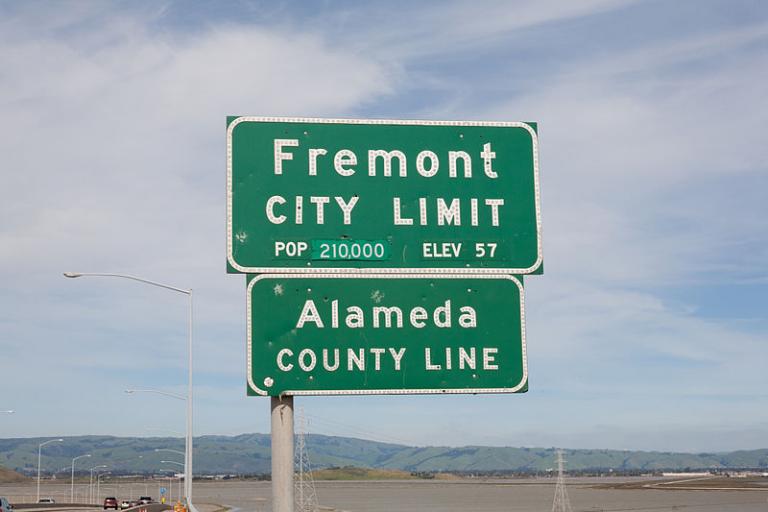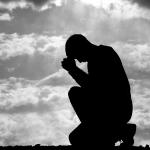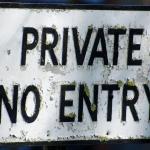
Sunday school teachers are not known to be intellectuals. I certainly was not one: I was in high school. But I was also the pastor’s kid, and as such, I have had a front row seat to what are called ‘church politics’ for quite some time. In some ways, I am not surprised that my spiritual father has said that ‘politics are very close to my soul.’ I have been contemplating churches as polities since I was a kid and trying to figure out what’s wrong with them. Eventually, my obsessions led me to a geography PhD on Chinese Christians engaging in civil society publics on the Pacific Rim. I thought that the intellectual mistakes I made in that work – namely, that I was way too optimistic about the powers of publics to undermine what I used to call the ‘private consensus’ (the secret agreement within institutional actors to keep all of their actions private) – had come from my radically orthodox understanding of Anglican praxis, the lens through which I wrote about social and cultural geography. But in reflecting on my conversation with my student over the last weekend, I realize that my mistake happened way back in Fremont.
The material facts of the church politics at that tiny congregation of about fifty Cantonese-speaking Chinese Protestants are stranger than fiction. In brief, the story begins with an ‘astronaut’ – someone who worked in China but whose family was in the United States – embezzling one million U.S. dollars from the Bank of China. Through informal networks and what I heard was a briefcase of legal tender bills, a wealthy businessman close to our church bailed him out of China before he was led to the firing squad. His arrival in our church caused a stir when he applied for membership. Our ‘board of deacons’ (what in a Catholic church would be a trustee board) had a first-year law student who overzealously parsed the bylaws for the membership rules and found that everyone who applied had to have ‘repented’ of their sins in addition to believing in the Gospel of our Lord Jesus Christ. One faction of the church that had personal beef with the astronaut let everyone know that he had a gambling problem, so of course he hadn’t repented. This group had my father pinned in by forcing him to talk candidly with the membership candidate about his issues. But that frank talking led to the formation of a second cluster, this one mostly from a Hong Kong-based fundamentalist church that didn’t believe in pastors in the first place. These people liked to host milk tea parties at their home to discuss why my dad was not full of the Lord’s grace and able to let that guy go for the errors of his past in Jesus’ name. All this partying resulted in the accidental development of a third party: the ones who weren’t cool enough to be invited to these caffeinated meetings. Most of these people are still on good terms with my parents, but they could never fathom why my family left that church. I don’t think why my dad ever told them the whole story, so it is a little scandalous that I’m writing about it on my blog, but it has been over fifteen years. Besides, I’m not so much licking my wounds as a pastor’s kid these days as I am amused by how easily the whole affair could have been the subplot of a John Le Carré novel.
As an American in Fremont, I thought the stupidest part of the whole thing was that all the talking had to go on behind the shadows. It is a truism that sunlight is the best disinfectant, and it is also a cliché that Chinese people would prefer to pretend their problems don’t exist than to talk about them (this is the whole premise behind Maxine Hong Kingston’s Woman Warrior). At one level, I began writing about Chinese Christians to process it all; some of it was published, but all of it (as I’ve said) was terribly unconvincing, probably because I was just beginning to meditate on this stuff. But on another level, I began to develop a train of thought that I would get churches like ours out of the rut we were in, and herein lay the mistake that I nursed for a good decade before I had the mother of all intellectual crises and converted to Eastern Catholicism.
The spring and summer after all hell broke loose over the embezzling astronaut’s membership application, our family took two trips. One was to Portland to attend my father’s Doctor of Ministry graduation from an evangelical school called Western Seminary, where he had written a juicy dissertation on pastoral sexual misconduct in the last Chinese church we had been at (drama like this follows the Tse Family; it’s a pattern). There, we met some Chinese evangelical folks from Vancouver who were old friends of ours. They seemed to be really plugged into the goings-on of the rest of the Christian world, quite unlike what seemed to be my isolated church experience in Fremont, and I thought that they shone with the joy of the Lord. Following that, we went to Colorado to go to a pastors’ conference at Focus on the Family. Not only did I reconnect with my bombshell blonde evangelical preschool sweetheart (long story for another day, or maybe never, because embarrassing), but our pilgrimage to the Dobson Fortress revolutionized my spiritual life, or so I thought. Here was the ex-gay worship leader Dennis Jernigan (the guy who wrote ‘You Are My All in All‘), who told me to listen to Keith Green to learn how to chord on the piano. There were all the outings that we went on, including to see some guy karate chop a bunch of bricks (I am a sucker for this act to this day) as well as to watch Finding Nemo. There was a Christian music group that sang for us, a comedian who made our sides hurt, and an inspirational announcement that the Family Research Council would push for a federal constitutional amendment to prevent same-sex marriage from becoming the law of the land. This was 2003; all things were possible, and it sounded like these white people were way more engaged in their society than our dinky little Chinese church. Also, I bought Michael W. Smith’s two Worship cds; the songs were so much more exciting than the hymns we sang. In spirituality class at the Catholic school the next year, I made a Jungian ‘mandala’ using the fiery rain pictures from the Smith albums as a symbol of my spirituality. Looking back, I am so proud of myself for seamlessly fusing evangelical consumer culture with the spirit of Vatican II.
Our church’s problem, I concluded, was that we weren’t plugged into ‘the Body of Christ.’ If our attitude could have been more capacious and open to public engagement, we wouldn’t be given to our private infighting. We’d be able to see the big picture and figure out a solution without all the factionalism, I thought. I think my dad came to agree: the next year, The Passion of the Christ came out, and we saw it twice. At the end of our second viewing, my dad remarked that if all that Mel Gibson depicted happened to Jesus, then why do we fight so much? Christian culture, in other words, would save the day. Enthusiastically, I forced the girl who had been my prom date to learn to chord. This was one of the things that destroyed our friendship, not to mention any hope for romance. This too is a theme in my life, it seems: when my head gets entrenched in an ideological soup, women unfriend me. It’s like in my version of the world, the universe is normatively feminist, forcing me at every turn to repent of my patriarchal and misogynistic tendencies.
Looking back, I can see some of the empirical flaws of my solution. For one, the folks in my church weren’t really that unplugged from evangelical culture; it’s just that they were involved in Chinese evangelical networks in the Bay Area. For example, our church hosted screenings of some of the Hong Kong-based Media Evangelism Association’s first films, the ones they did before they became obsessed about finding Noah’s Ark on Mount Ararat (another long story). We even hosted the founder’s wife, Mrs Chiao, in our home. It is so poetic that I’m now buddies with Sam Tsang, the guy who publicly hit them up for fraud when they oversold their Ark project.
The same goes for the political involvement of our church’s people in civil society. For all of my being inspired by Focus on the Family pushing a constitutional amendment against same-sex marriage, it was one of the factions in our church, mobilized by Chinese evangelical organizations with radio presence, that drove a number of our people out to the Sunset to protest same-sex marriage. Four years later, those same people, hyped by those same organizations, pushed for a constitutional amendment in California to ban the use of the word ‘marriage’ to describe same-sex relationships. Our family, of course, didn’t get involved in any of that because we weren’t good with the people in that church faction, although I don’t really remember where in the convoluted soup over the astronaut’s membership application they fit. But so much about our people being isolated from the institutions of the ‘the Body of Christ’ and not being involved in politics: they helped get Proposition 8 passed in 2008 and gave me something to write about in my PhD, to boot!
But the other thing was that this solution made me incredibly gullible toward everything that evangelical culture had to sell. In some ways, my dad had done the church right: he wanted us to sing hymns, hear his sermons, and develop our own Sunday school curriculum and youth group programming because he didn’t want to have the hassle of some used car salesman with a pulpit pastoring his people. It also wasn’t exactly an isolation strategy: he had invited the local police chief, liberal Protestant pastors in the area, and Chinese community leaders to speak to our people so that we’d get involved in the local Fremont community. That is what he had been trained to do in his Berkeley seminary. Diana Eck would have been proud of us, if only she’d researched our insignificant congregation as part of the Pluralism Project.
But one of the vices of the evangelical project is that it posits that the ‘Body of Christ’ consists of all of these prominent organizations and intellectuals as the voices of God’s people. Inexplicably, one of the campaigns I fought as a high school senior was for our deacon board to buy into the Christian Copyright Licensing International (CCLI) program so that we could sing worship songs without getting sued. I had learned from the network of pastor’s kids that I had been plugged into after the Colorado trip that having CCLI was a matter of the evangelical ethics of ‘living above reproach,’ so I printed out handouts for each of the deacons to consider. The rationale I offered was from my savior complex: they had screwed up the church by keeping everything under wraps – including by restricting our song selection to the hymnbook and other Chinese texts that didn’t seem to require copyright permission – so it was time for worship music to get them out of their isolation mentality. Eventually, I think they gave in, but then we left the church, and I don’t know if they continued the license. I’m pretty sure they couldn’t afford it.
Opening up to the evangelical version of the ‘Body of Christ’ opened for me the ideological floodgates. What I got wasn’t sunlight as a disinfectant; it was instead the whole kaleidoscope of ideologies circulating at the time – ‘man of god’ intentionality, kissing dating good-bye, the romance of global missions, the seeds of what became ‘New Calvinism’ through a dalliance with the spiritual formation of the ’emerging church.’ I tried to unravel the ‘private consensus’ of my little church in Fremont. What I got was the full firepower of the institutional apparatus of American evangelicalism overwhelming me with its seductive shininess. I probably should have understood this dynamic better as I engaged in ministry, when inexplicably, kids I was discipling in the youth groups would spout some Christian cliché that undermined whatever I was teaching. But I was deep in this larger bubble too, one that extends well beyond Chinese evangelical churches even though those were the ones that I was attending. I couldn’t see it, not even when I signed and helped to organize an Asian American ‘open letter’ to the evangelical church about ten years later calling for an evangelical acceptance of Asian Americans in their churches. The private consensus is unraveling, I declared in jubilation. I was such a cute freshly minted PhD.
That mistake, I am saying, was about ten years in the making. It all started with my misreading of a Chinese church in Fremont that could have been featured in a suspense novel. The dissolution of this church messed a bunch of us up, my students and me included. But there is something strangely refreshing, perhaps even redemptive, about being able to trace back some of my own mistakes there too. Praying as I do during the Great Fast the part of the Prayer of St Ephrem where I ask to see my own sins and not judge my sisters and brothers, I prostrate and ask the Lord for mercy on my poor intellect. As I do that, I realize why Fremont has always stuck with me with nostalgia, longing, and subconscious fear. Like Lady Bird with Sacramento, I have unfinished business there.












